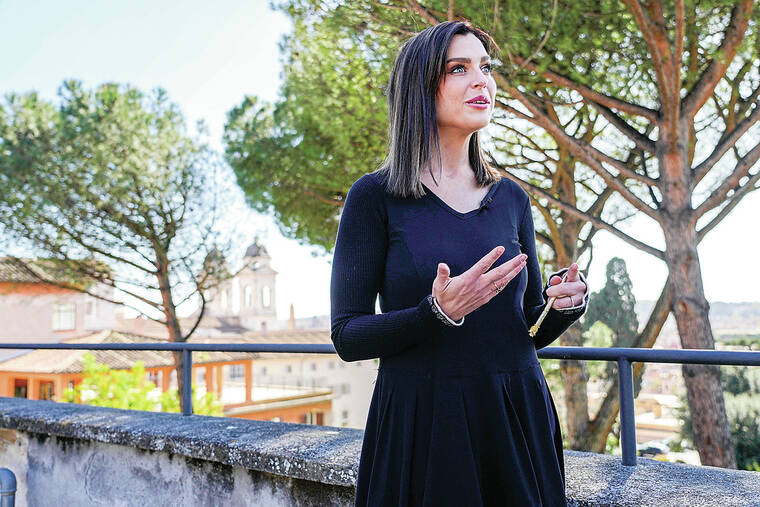Right to children or children’s rights? Surrogacy debate comes to a head in Rome
ROME — An international campaign to ban surrogacy received a strong endorsement Friday from the Vatican, with a top official calling for a broad-based alliance to stop the “commercialization of life.”
A Vatican-affiliated university hosted a two-day conference promoting an international treaty to outlaw surrogacy, be it commercial arrangements or so-called altruistic ones. It’s based on the campaigners’ argument that the practice violates U.N. conventions protecting the rights of the child and surrogate mother.
At issue is whether there is a fundamental right to have a child, or whether the rights of children trump the desires of potential parents.
The conference, which also drew U.N. human rights representatives and experts, marked an acceleration of a campaign that has found some support in parts of the developing world and western Europe. At the same time, Canada and the United States are known for highly regulated arrangements that draw heterosexual and homosexual couples alike from around the world, while other countries allow surrogacy with fewer rules.
Pope Francis in January called for an outright global ban on the practice, calling it a despicable violation of human dignity that exploits the surrogate mother’s financial need. On Thursday, Francis met privately with one of the proponents calling for a universal ban, Olivia Maurel, a 33-year-old mother of three.
Maurel was born in the U.S. in 1991 via surrogacy and attributes a lifetime of mental health issues to the “trauma of abandonment” she says she experienced at birth. She says she was separated from her biological mother and given to parents who had contracted with an agency in Kentucky after experiencing infertility problems when they tried to have children in their late 40s.
Maurel says she doesn’t blame her parents and she acknowledges there are “many happy stories” of families who use surrogate mothers. But she says that doesn’t make the practice ethical or right, even with regulations, since she said she was made to sacrifice “for the desire of adults to have a child.”
“There is no right to have a child,” Maurel told the conference at the LUMSA university. “But children do have rights, and we can say surrogacy violates many of these rights.”
She and proponents of a ban argue that surrogacy is fundamentally different from adoption, since it involves creating a child for the specific purpose of separating him or her from the birth mother for others to raise as their own.
Monsignor Miloslaw Wachowski, undersecretary for relations with states in the Vatican secretariat of state, concurred, saying the practice reduces human procreation to a concept of “individual will” and desire, where the powerful and wealthy prevail.
“Parents find themselves in the role of being providers of genetic material, while the embryo appears more and more like an object: something to produce — not someone, but something,” he said.
He called for the campaign to ban the practice not to remain in the sphere of the Catholic Church or even faith-based groups, but to transcend traditional ideological and political boundaries.
“We shouldn’t close ourselves among those who think exactly the same way,” he said. “Rather, we should open up to pragmatic alliances to realize a common goal.”
The Vatican’s overall position, which is expected to be crystalized in a position paper Monday on human dignity, stems from its belief that human life begins at conception and must be given the consequent respect and dignity from that moment on.
The Vatican also holds that human life should be created through intercourse between husband and wife, not in a petri dish, and that surrogacy takes in vitro fertilization a step further by “commercializing” the resulting embryo.


